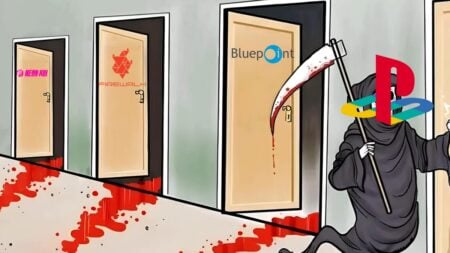Early access is a video game funding model that allows consumers to pay for games in early stages of development and that money helps the developers finish the game. It shares some similarities to Kickstarter, although in early access you get access to the game in its current state. Early access is like a type of donation where the consumers gives money to the developers to become beta tester. The money given is supposed to be used to improve the game.
Early access is supposed to help finish the game. There have been numerous examples of well run early access titles, like Minecraft and Space Engineers, but it can be abused. A game can stay in early access for years and sometimes they might not even deliver. It is a risky endeavour for the consumer; there is a fine line between a broken game and a game that is still adding features. In theory, early access is a good idea because it can fund a team of developers through what is a very expensive period to take a concept and deliver it, helping indie devs to reach their goals. The problems arise when you get larger companies utilising Early Access and developers that decide not to finish making their product. At first, the idea of early access was one that people had a mixed reaction to, but now after numerous occasions of developers “taking the money and bailing”, people are unwilling to support the idea.

Some games have been released through early access and have been showered with praise and affection from the gaming community for delivering a product that AAA companies are too afraid to tackle, although the gap in the market exists. Games like this include:
- The Banner Saga
- Space Engineers
- Minecraft (Not on Steam)
- Wasteland 2
- Divinity: Original Sin
- State of Decay
- Mercenary Kings
- Don’t Starve
- ARMA 3
- Kerbal Space Program
These games had a concept, the developers knew what the limitations were and delivered a finished product that became successful. However, there are plenty of games that have not lived up to expectations, with developers disappearing, lack of updates and a lack of ambition to continue the project. These games include:
- Air Control
- DayZ
- Godus
- Towns
- Castle Story
- WarZ (Also known as Infestation: Survivor Stories)
- Nether
- The Dead Linger
- The Slaughtering Grounds
I personally hate the idea of paying full price for what is essentially a promise. Promises can be broken as seen in the list above, but then promises can also be delivered. The big debate falls around the subject of trust. The very idea of pay now, maybe receive something down the line has never sat well with me. I’ve always been a believer of pay now, get something in return. In the cases of the positive early access titles, consumers were rewarded for their faith, or had the pleasure of enjoying the product, whilst unfinished, but enjoyable nonetheless. In the poor experiences of early access, we’ve been given broken games that don’t work, games that have no purpose, games that have had assets copy and pasted from the Unity store page. Long and ongoing development times where there appears to be no finish date, or just flat out lies. Abandoned games with several teams having to “take over” the project just to get it past the finish line is not what a consumer that has paid anything from $15 up to $60 for. The results are almost criminal in some cases, but on balance – there is hope for Early Access. Like with the success stories, developers need to realise that Early Access isn’t a way to get a blank pay cheque and do whatever they want, they need to take some responsibility for their projects. I have come up with a check list of things a developer should do before even thinking about Early Access:
- Ensure the game works. A simple, self explanatory point, yet there are products readily available for people to pay money for which don’t work, or have the most basic elements of gameplay working. There needs to be a purpose to the game. Consumers do not want to be able to move around in an empty shell of a game with nothing to do.
- Original design. There are developers who utilise stock assets which is fine by itself, you know a tree here, or a wall there, but when the entire game is made up of pre-purchased assets, there has been no effort to create anything. It’s a simple case of copy and pasting, which anyone could do. The result is a mish-mash layout that has no real continuity, because there is no art style implemented, just assets being placed around.
- Work in progress. Reiteration of work in progress. Some work must have been made, you cannot sell empty promises and concepts. If you are marketing a product, there has to be a product for the consumer.
- Early Access does NOT protect you from criticism. I don’t care what the product will be like in 6 months, a years time; I’m reviewing the product as it is. It infuriates me to find journalists who hold back on a review of a game, saying “When it’s completed, it will be…” No! Just no. You have given a product to review, critique, give feedback, whatever you want to call it. Your findings have to be honest and appropriate. Early Access is not a shield or an excuse that can be used because something is bad. Of course I accept that some features will be missing, and some graphical problems may occur because of place holders, and of course there will be bugs that need ironing out, but saying its Early Access doesn’t exempt it from feedback, and feedback is one of the reasons developers want to get their product into Early Access in the first place. When the feedback is ill received (as in the case of Jim Sterling when commenting on The Slaughtering Grounds) then there is a question of integrity on the developers.
- Assess the market. Is there a gap in the market for your product? Don’t make the same sort of game as everyone else. I love zombie games as much as I like cake, and trust me when I say I’m all about that cake; but you can’t look anywhere without seeing zombie/survival games cropping up. Stop making them, just give it a rest. Make a nice platformer, or a good strategy sim for goodness sake.

In short, I support Early Access as a concept. But I feel that it does get abused and people are well within their right to be sceptical. My only message is to be fair about it, don’t write off all Early Access games because as history has proved, there are some brilliant and talented developers out there that need to use the system to get their concept across, and without it, these ideas would never see the light of day. Have faith my friends.







